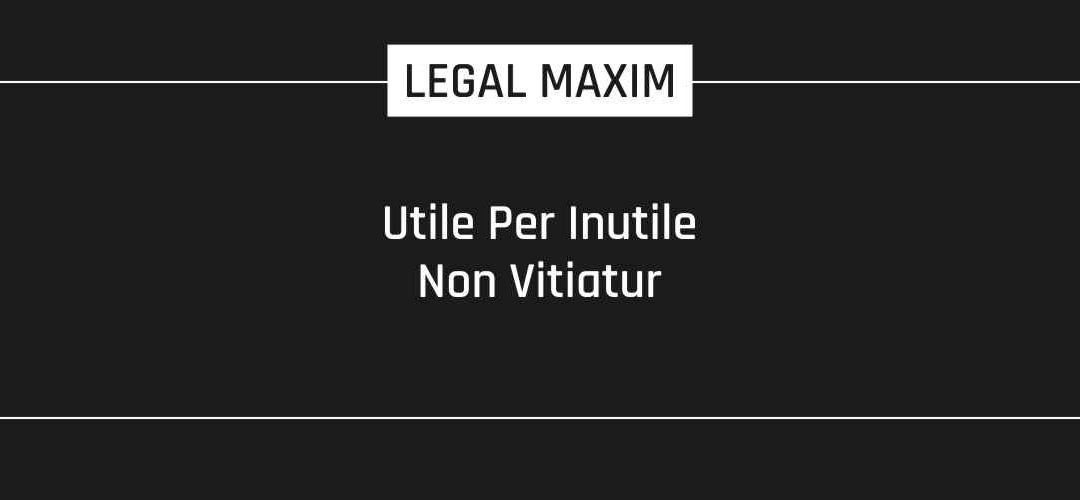Literal meaning
The literal meaning of this maxim is “What is useful is not vitiated by useless”
Explaination
This maxim shines the light on explaining the general rule settled in pleading. It is applied in Criminal as well as civil cases. It says that mere surplusage or the extra part of the non essentials will not vitiate. The useless cannot render something invalid if it is useful in some other area.
Origin
The maxim has a Latin origin and thus is a latin maxim.
Illustration.
Any valid and effective written deed or instrument cannot be invalidated by any useless additional information in it .
Case reference.
French v. Clinchfield Coal Corporation 171 1938.
In this case, it was decided that if some words are removed from court’s judgement, the instrument would be validated and will be free from objection. It was decided that those words are superfluous and add no meaning to the instrument. Their presence or absence would absolutely make no changes in the instrument.
Suber vs Foundation 1979.
It was decided that the surplusage will not destroy the verdict if the remaining part of it is good in itself. The verdict informs about the civil fine for punitive damages, whichus absolutely under Court’s discretion to look over. According to the court, ut was decided that if the surplusages removed, the verdict is not a subject to objection
